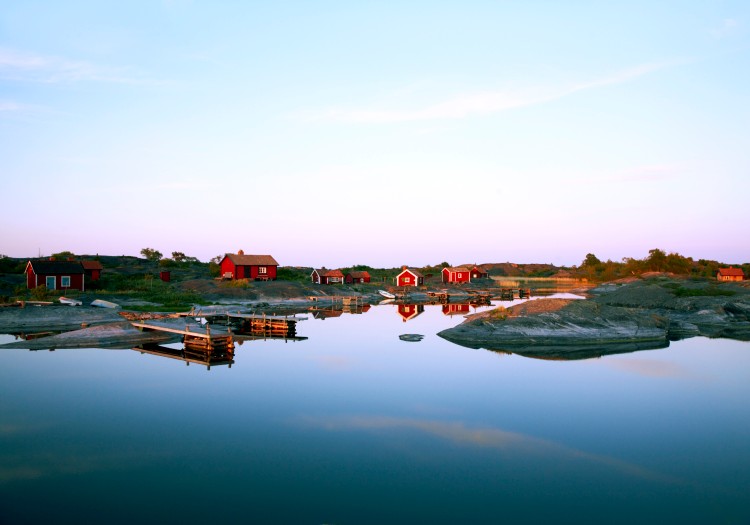Fishing in Utopia: Sweden and the Future that Disappeared by Andrew Brown
Sweden holds a powerful allure for British men, which I used to see for myself every Friday in a departure lounge of Heathrow airport. I was part of a group of weekend commuters who met for a beer, en route to see our girlfriends in Stockholm, in Terminal 3. Every so often one of our number would disappear, being swallowed up by this beautiful country for good. There would be no goodbye or explanations. It was taken for granted each one of us, sooner or later, would succumb.
But not Andrew Brown. After eight years as a Swede, where he not only dreamed in Swedish but learned to distinguish trees by the smell, his marriage collapsed and he returned to Britain. It got worse, as he kept returning to find his socialist paradise becoming more corrupted. His book, Fishing in Utopia: Sweden and the Future that Disappeared, is a remarkable tour of the country, its people and their mindset.
Brown was made all the more vulnerable to Sweden by his love of fishing. The pike-filled lakes seduced him as much as the women or socialism. For him it was the perfect form of communion with his adopted country. His personal bait was a Swedish girl he met while working in a Welsh nursing home, and he decided to emigrate with her. He’d been thrown out of public school, for an annoyingly undisclosed offence, and decided to start again as a labourer in a timber factory in a town north of Gothenburg.
It was 1977 and he found there everything he thought socialism ought to be. He attended evening classes organised by the trade union, he read socialist newspapers and went on workers’ holidays. ‘Nothing on state-run television suggested the world might be different.’ This was his utopia, where everyone believed that ‘individuals, in some important sense, didn’t exist at all’.
Yet a serpent slithered into this Eden, in the unlikely form of The Spectator. His father had gifted him a subscription, and he tried his luck selling an article about Sweden. It was printed, and soon he was filing regular dispatches while living in a bungalow in the middle of the forest, wandering barefoot in summer. Fatally, he came for lunch at our Doughty Street office and liked the staff (‘all quick-witted and, after lunchtime, drunk’). The journalism bug had bitten, hard.
Within a year he was in London pursuing a writing career, without his wife or son. His Swedish ideal was supplanted by a new love of London, a city which he said ‘filled all horizons’. He found an English wife, and started to view Sweden with the objectivity of an ex-lover. On his later journeys, he finds all manner of fault with it — from the presence of McDonalds to drunkenness. Work, he notes mournfully, had become ‘something done with keyboards instead of nail guns’.
It is as if he expected time to stand still in Sweden, and for it to become some kind of 1970s Brigadoon. Sweden modernised (and deindustrialised) at pretty much the same speed as the rest of Europe and is no more, nor less, corrupted. The most popular baby name in Malmo may well be ‘Mohammed’, as he says, but the same is now true for all of England. And Swedishness is still powerful enough that Kurdish-born women can be seen walking Stockholm’s streets looking like Swedes — with perfect skin, long hair and spitting out sachets of sucking tobacco.
It is precisely because Sweden was not ‘destroyed’, as Brown claims, that his book has its wonderful relevance. My Swedish wife declared him as perceptive as Bill Bryson — and, often, just as funny. His love-hate relationship yields a brilliant list of Sweden’s charms and frustrations. How its language is shaped by the cold, so that one spends as little time as possible with one’s tongue exposed. How even on wide, open roads its motorists keep to 55 mph. How to be expelled from the consensus there is ‘like being thrown out of a space station’.
Brown returned to Lapland to find the rural ideal he first loved: supermarkets stocking reindeer blood, men who ask him if it’s true that England gets dark at night in summer, and all the exotic fish you can cast a net at. Fishing in Utopia makes you more likely to visit Sweden, but less likely to emigrate there. If I ever see my old friends in Terminal 3 bound for Stockholm on a Friday evening, I shall be sure to give them a copy.







Comments